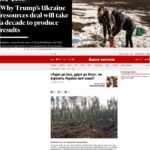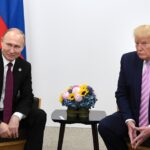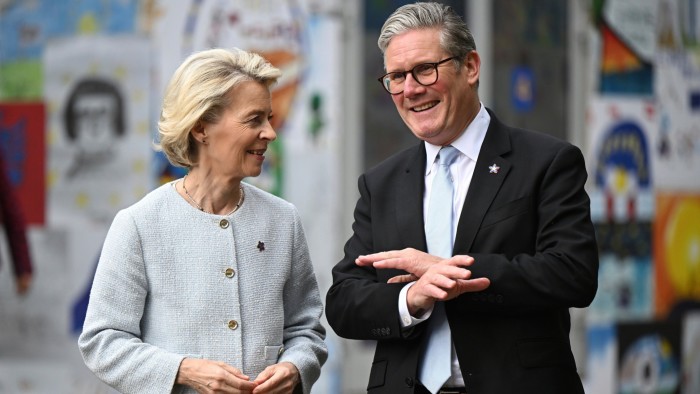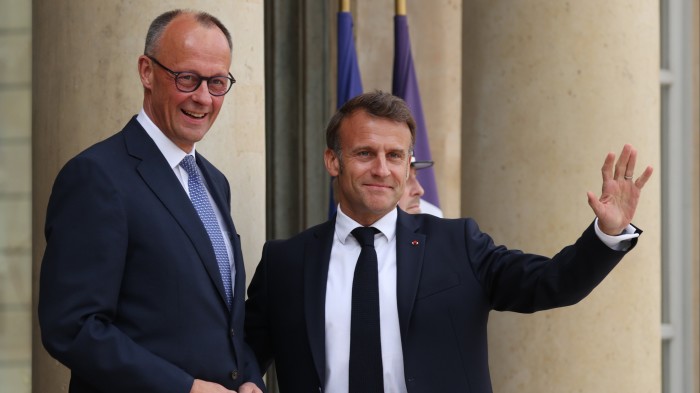Stricter US border controls prompt business travel rethink
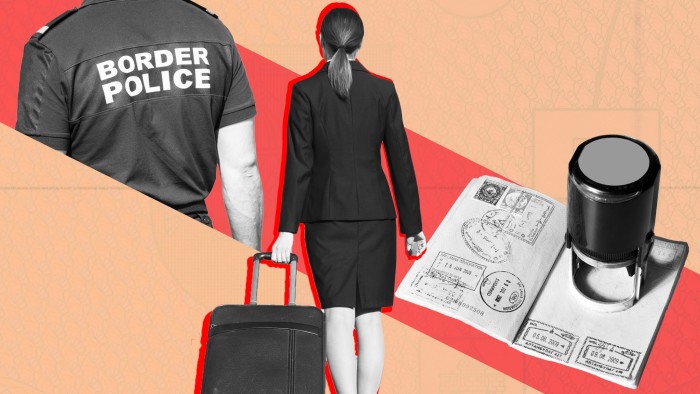
When Alexander, an Asian research scientist at a top US university, was getting ready for a work trip to Brazil, his preparations took an unusual turn — he consulted his lawyer, brought along a burner phone and carried a blank laptop. Once his work was complete, he uploaded his data to the cloud then scrubbed the machine clean before flying home. “I was advised to keep zero data on my devices,” he said. It was “extraordinarily disruptive”.
With Donald Trump back in the White House, many corporate executives, academics and government officials in Europe and elsewhere are approaching trips to the US with a level of caution more often associated with higher-risk jurisdictions such as China and some countries in the Middle East.
Stricter immigration enforcement and more aggressive border screenings — which can include searching and even copying data from travellers’ devices and, at times, denying entry — are prompting organisations to reassess the risks and protocols around even routine work travel. Contacts, emails, messages and social media posts could be subject to inspection, immigration lawyers said.
Under the Trump administration, the number of border searches for January to mid-May have already surpassed those recorded in the first half of 2024 — up 10 per cent year on year — according to US Customs and Border Protection, the federal agency.
Alexander, who, like other individuals that contributed to this article, asked to remain anonymous due to security concerns, is emblematic of the shift. “I’m an immigrant, not a US citizen, working on climate change, meeting stakeholders such as labour unions and academics in Brazil, a country led by a leftwing government . . . All of this can be turned against you,” he said.
Officials at his university, wary of a potential backlash from the Trump administration, said they would not provide legal aid should he encounter problems at the border, and advised him not to leave the country. The legal counsel he personally hired gave a stark warning, telling him border agents were in the mode of: “Find me the man and we’ll find the crime.”
The uncertainty follows Trump’s January 20 executive order, which aimed to put in place additional vetting and screening processes for foreigners seeking entry to the US and those already based there. It also laid the groundwork for new travel restrictions and a review of existing visas.
Assistant commissioner Hilton Beckham at the US Customs and Border Protection told the FT: “CBP’s search numbers are consistent with increases since 2021, and less than 0.01 per cent of travellers have their devices searched . . . Claims that CBP is searching more electronic media due to the administration change are false.”
She said searches played a “critical” national security role and “allegations that political beliefs trigger inspections or removals are baseless and irresponsible”.
Yet, US universities including Duke and Columbia are among those advising international staff and students not to leave the country unless absolutely necessary. This followed a series of detentions and deportations that have rattled confidence — even among people holding valid visas or green cards.
Last month US secretary of state Marco Rubio stated the pro-Palestinian activist and Columbia University graduate Mahmoud Khalil is deportable specifically because of his “beliefs, statements or associations” that would compromise US foreign policy interests.
The European Commission has issued burner phones and basic laptops to some US-bound staff to avoid the risk of espionage. The Financial Times reported that commissioners and senior officials travelling to the IMF and World Bank spring meetings last month were given the new guidance.
Companies are also taking swift action: many are seeking fresh legal advice for employees travelling to the US for work. Others are altering plans and, in some cases, advising against travel.
Elizabeth Nanton, US immigration practice leader and partner at KPMG Law in Canada, said even though the vast majority of travellers were not encountering any issues, companies were preparing US-bound staff for potential questioning and advising them what to do if their devices were searched. Clients are asking “what could happen, what might they expect”. She said several clients were re-evaluating their IT policies to scrutinise what data staff should be carrying on their devices.
No matter how many times a non-US citizen has entered the country, companies should treat each case as “a new determination of admissibility”, Nanton added. She has been advising companies to work with immigration specialists on a case-by-case basis for US travel.
Some companies are updating their travel guidance for the US, although there is wariness about publishing specific directives as they do not want to draw attention from Trump administration officials. One UK-based investor at a large asset manager said staff had been told to “exercise significant caution” when taking their personal mobile phones into the US. “Are you telling me business travel to the US is now the same as going to China?” he said.
One pharmaceuticals industry executive based in New York said some large companies in the sector were not sending people to the US, especially if they thought they were likely to get stopped at the border because they were “brown, Muslim or Chinese”.
A London-based corporate executive said their firm was encouraging staff to apply for Global Entry, the US programme that speeds up border checks for vetted travellers. Meanwhile, some US technology companies are urging foreign staff to carry extensive personal documentation, including marriage certificates, rental agreements and payslips to ease re-entry.
Online forums such as Reddit are filled with advice to, for example, delete social media apps and avoid storing any politically sensitive content on your phone.
Since the January 20 executive order, the UK and German governments have updated travel advice with tougher wording, warning citizens that even minor infractions could lead to detention. “The authorities in the US set and enforce entry rules strictly. You may be liable to arrest or detention if you break the rules,” the UK says.
One lawyer at a British firm with US business interests said while these rules had always been in place, they were now more regularly enforced, which is why UK and German authorities had tweaked their travel guidance.
“The odds [of facing any trouble] are still fairly low,” said the lawyer. “For businesses day-to-day, the focus is on digital devices. Federal authorities have long been able to seize, search and copy the information that is on your device.”
The shift is starting to drip through to business travel bookings. Air France-KLM and Lufthansa have reported signs of weakening demand on transatlantic routes among European passengers.
“There is a definite deceleration in business travel bookings,” said Henry Harteveldt, a travel industry analyst.
“Various airlines tell me they are seeing ‘slight’ or ‘modest’ deceleration in their future business travel bookings, including US domestic, within Europe, and in both directions between Europe and the US.”
He said reasons for this included weakening economies, which typically trigger a cutback in business travel, “as well as concerns among international business travellers regarding possible problems entering the US”.
Harteveldt observed there was a “noticeable concern among corporate travel managers about international inbound travel to the US”.
Alexander, the research scientist, is already thinking about the preparations he will have to make for his next business trip, this time to the UK. “I have to do the exact same thing again,” he said.
Additional reporting by Hannah Kuchler and Philip Georgiadis

